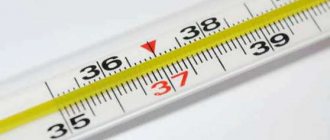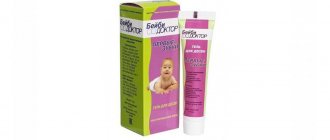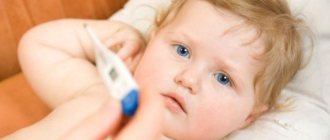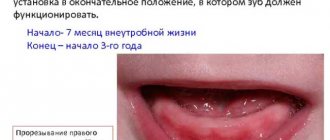How to help your child when teething
Teething in children, or more correctly, teething, is quite often accompanied by various changes in the behavior and well-being of the baby, which is very frightening for parents who are not prepared for such a development of events. What dental symptoms in children should alert adults to what to do?
Helping your baby while teething
If, when teething, the baby is simply worried, he is constantly salivating, he sucks his fingers or tries to scratch his gums with something, it is quite simple to help the baby:
- Get some very soft wipes and constantly wipe away any saliva. This will protect your baby from facial skin irritation. At bedtime, place a napkin under your baby's head to absorb any involuntary saliva.
- Be sure to buy high-quality special silicone toys for developing gums - teethers, or special rings with liquid so that the baby can chew on them. The liquid makes the rings softer and pleasantly cools the gums (the rings can be stored in the refrigerator). Don’t save money - take only branded, certified products. After all, this is the health of your beloved child.
- Periodically massage the gums using a special nozzle, or just with your finger (wash your hands thoroughly, keep your nails short, with neatly trimmed edges), maybe with a moistened gauze swab. This procedure will also prevent the occurrence of stomatitis (“Stomatitis in infants - types, causes, symptoms”).
- Putting your baby to your breast more often is a great way to soothe him and relieve itchy gums.
- Some kids enjoy sucking and gnawing on bagels, a crust of bread, an apple without the peel - suggest it, it’s a good distraction.
- It is strictly forbidden to lubricate the gums with various medications without a doctor’s prescription, or to give the baby pills and mixtures on your own. Only a specialist - a pediatrician or pediatric dentist - can prescribe an ointment or gel to relieve pain, and a preliminary test for allergic reactions must be carried out. Although ointments and gels with lidocaine (Kamistad, Kalgel) are sold without a prescription, you should not lubricate the baby’s gums without checking, because if the baby is allergic to lidocaine, the baby may experience anaphylactic shock. For allergy sufferers, the doctor prescribes a special ointment called Baby Doctor or others.
- Try to distract your child, spend more time playing with him, and going for walks.
When should you see a doctor?
You should definitely consult a pediatrician if the following signs of teething are observed in your child:
- heat;
- vomit;
- diarrhea;
- runny nose;
- cough;
- skin rashes;
- convulsions;
- constant drowsiness;
- prolonged irritability, moodiness.
In any case, such symptoms should be a reason to consult a doctor. Often parents, on the advice of grandmothers, attribute everything to the fact that the child is teething; fever, they say, happens to all children. But no. Most children tolerate tooth growth without fever. And elevated temperature is a sign of most diseases. Therefore, you can miss the onset of some disease or pathological process that coincides with the period of teething.
Why does the temperature appear? The fact is that at the site where the tooth erupts, the gums swell, which is associated with the raising of the tooth and an increased influx of biologically active substances. The body reacts to this with a protective increase in temperature - to prevent infection of the gum cut by sharp edges. Dental fever lasts for one to two days. If the child tolerates this easily, is not predisposed to convulsions, and the doctor does not find other reasons for the increase in temperature, then it is not necessary to bring it down to 38 degrees. In case of a longer increase in temperature, examination of the baby and consultation with a doctor are necessary.
should be wary of vomiting during teething, unless other causes of this condition are excluded. All changes in the gastrointestinal tract have a fairly simple explanation: during this period, a lot of saliva is produced and the child constantly swallows it frequently, which causes increased secretion of gastric juice and vomiting (rare), as well as increased intestinal motility, which means diarrhea in a child during teething. Diarrhea occurs rarely (2-3 times a day), the discharge is watery and lasts no longer than 2 days. If the diarrhea is more frequent, prolonged, streaked with blood, with an increase in temperature and refusal to eat, immediately seek help from a medical facility - it could be an intestinal infection that the baby contracted when scratching his gums. In this case, treatment in a hospital is indicated, since the patient’s condition can deteriorate very quickly due to dehydration.
The accumulation of saliva in the throat often causes a wet cough, and its flow into the nasal passages causes a runny, watery runny nose. These conditions do not require treatment and disappear without a trace in 2-3 days. But only a pediatrician can assess the causes and severity of these pathological processes. In order not to confuse real illnesses with complicated conditions during teething, or in any violation of the baby’s behavior or health, consult a doctor. It’s better to be safe a hundred times than to regret a missed opportunity once.








